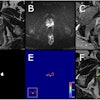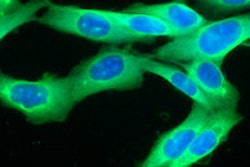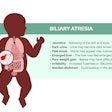Administering radiation therapy to chest lymph nodes for patients with early breast cancer improves overall survival without increasing side effects, according to a presentation at the 2013 European Cancer Congress (ECC).
The international randomized trial, which involved 4,004 patients from 43 centers, evaluated radiation therapy to the lymph nodes located behind the breast bone and above the collar bone, specifically. The study results address the uncertainty about whether the beneficial effect of radiation therapy in such patients was the result of irradiation of the breast area, or whether it treated cancer cells in the local lymph nodes as well, the researchers reported on 28 September.
"Our results make it clear that irradiating these lymph nodes gives a better patient outcome than giving radiation therapy to the breast/thoracic wall alone," said Dr. Philip Poortmans, a radiation oncologist from the Institute Verbeeten in Tilburg, the Netherlands, and a member of the European Organization for Research and Treatment of Cancer (EORTC) Radiation Oncology and Breast Cancer Groups, in a news briefing on Friday.
Radiation therapy has a beneficial effect on locoregional disease control, and it also improves distant metastasis-free survival and overall survival, he added.
After an average follow-up of 10.9 years, the researchers found that patients with treatment delivered to the internal mammary (IM) and medial supraclavicular (MS) nodes had better overall survival independent of the number of lymph nodes involved. A total of 382 patients in the IM-MS group died during that period, compared with 429 in the non-IM-MS group, and there was no increase in nonbreast-cancer-related mortality in the first group, the researchers found. To date, there have been no serious complications related to the treatment.
The beneficial effect of radiation to the IM-MS area can be explained by the treatment's ability to eradicate microscopic tumor deposits in the lymph nodes. "With this treatment, we can stop the development of metastases at their source," Poortmans said. "Interestingly, this effect is irrespective of the stage of the tumor."
The researchers are planning an average follow-up of 20 years for these patients, with the next analysis at 15 years.



















